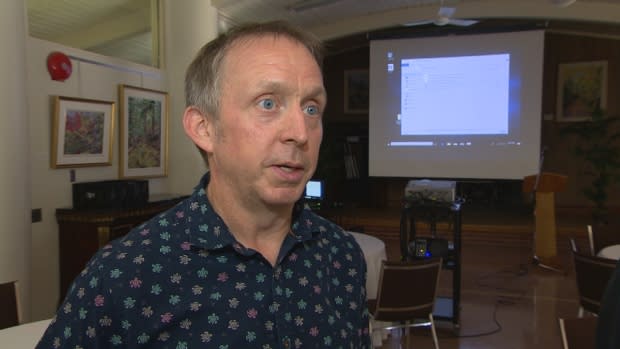Canada aimed to 'destroy Indigenous people': The MMIWG inquiry's case for genocide
It was an "inescapable conclusion" that genocide was committed against Canada's Indigenous peoples, said Marion Buller, the chief commissioner for the National Inquiry into Murdered and Missing Indigenous Women and Girls, during a Monday news conference.
That conclusion has been reverberating across the country since news first surfaced on Friday that the inquiry had determined that thousands of those women and girls were victims of a "Canadian genocide."
The final report said Canada, from its pre-colonial past to today, has aimed to "destroy Indigenous peoples."
"Canada has displayed a continuous policy, with shifting expressed motives but an ultimately steady intention, to destroy Indigenous peoples physically, biologically, and as social units, thereby fulfilling the required specific intent element," said a supplemental report.
The inquiry based this partly on the UN's 1948 definition of genocide. According to the UN, genocide is any of five acts committed with the "intent to destroy in whole or in part, a national, ethnical, racial or religious group." The acts are:
Killing members of the group.
Causing serious bodily or mental harm to members of the group.
Deliberately inflicting on the group conditions of life calculated to bring about its physical destruction in whole or in part.
Imposing measures intended to prevent births within the group.
Forcibly transferring children of the group to another group.
"The Canadian state was founded on colonial genocidal policies that are inextricably linked to Canada's contemporary relationship with Indigenous peoples," said the supplementary report.
"Modern Canadian policies perpetuate these colonial legacies, and have resulted in clear patterns of violence and marginalization of Indigenous peoples, particularly women, girls and 2SLGBTQQIA (two-spirit, lesbian, gay, bisexual, transgender, queer, questioning, intersex and asexual)."
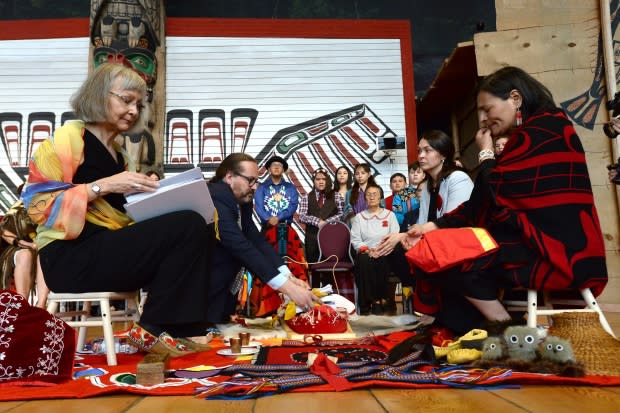
The inquiry argues that the genocide continues through the over-apprehension of children in the child welfare system, the lack of police protection for Indigenous women and the continued existence of the Indian Act, first enacted in 1876.
"In addition to the premeditated killing of Indigenous peoples, there existed egregious colonial policies that caused serious bodily and mental harm to Indigenous peoples and deliberately inflicted conditions of life on Indigenous communities calculated to bring about their physical destruction," said the supplementary report.
The report cites as examples scalping bounties offered in Nova Scotia in the 1750s to reward the murder of the Mi'kmaq, the elimination of the Beothuk and policies in the 1870s to deny food to Indigenous people on the Prairies to clear the way for the Canadian Pacific Railway.
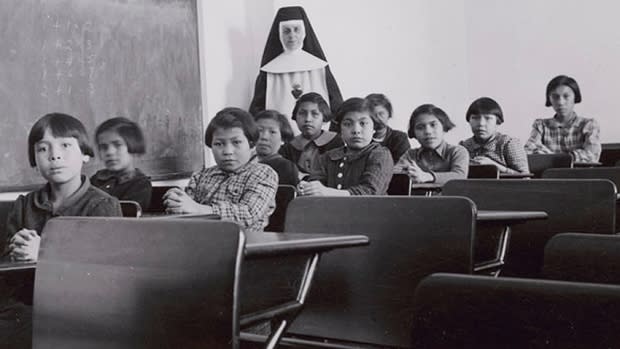
The report then moves to the 1880s and the beginning of government-sanctioned residential schools where Indigenous children were forcibly taken to face "starvation, deliberate infection of diseases, beating, torture, rape, solitary confinement, assaults and ill-treatment."
"These historical policies are appalling in their systematic destruction of Indigenous communities, but what is more appalling is that many of these policies continue today under a different guise," it says.
These acts and omissions "have had direct, life-threatening consequences."
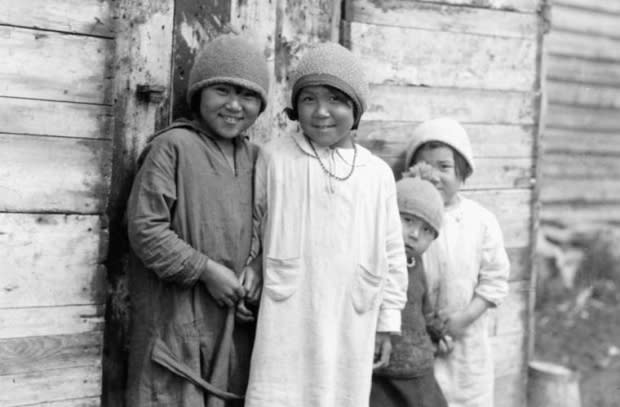
The inquiry quotes genocide scholar Andrew Woolford, a sociology professor at the University of Manitoba, who argues that Canadian scholars "have not given colonial genocide in Canada enough attention."
In an interview with CBC News, Woolford said that too often the experience of those targeted by genocide are deleted from timeframes used to determine what constitutes a genocide.
"Particularly when we are talking about settler colonialism, which stretches across hundreds of years, and it has all these shifts and changes in how it's enacted," he said.
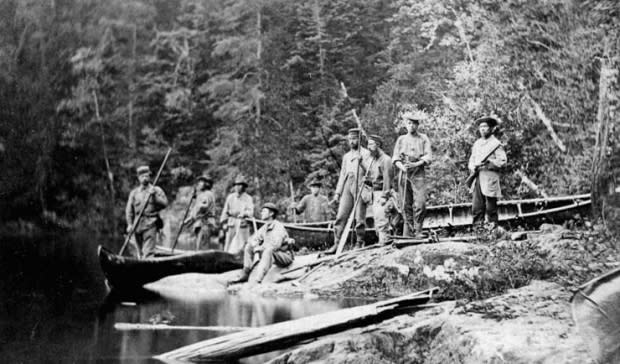
Woolford said he sees genocide like the inquiry did, as "not just as a matter of physical destruction, but in a sociological sense, as the destruction of groups."
When Canadian officials began discussing the "Indian problem," it's clear that Indigenous people were seen as barrier to overcome, he said.
"Indigenous people were represented as an obstacle to Canadian nation-building, as an obstacle to land possession.
"We see that a variety of different techniques put in place like residential schools, famine and forced removals."
Not all scholars believe the national inquiry made the case for genocide.
Tamara Starblanket, author of Suffer the Little Children, Genocide, Indigenous Nations and the Canadian State, said the inquiry undercut its arguments by using a term like "Canadian genocide".
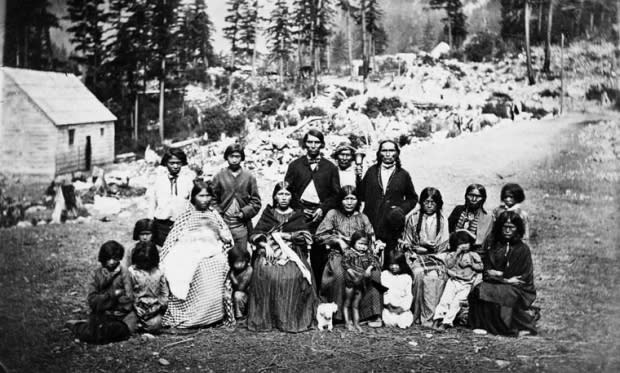
"The deployment of the language in this matter domesticates the international legal question of genocide," said Starblanket, a Nehiyaw isKwew (Cree) from Ahtahkakoop First Nation in Treaty Six territory in Saskatchewan.
"There is no such thing as Canadian genocide because genocide itself is a crime in international law," she said.
Starblanket, whose book concludes Canada is guilty of genocide, said Ottawa shielded itself from that crime by only adopting two of the five acts included in the UN convention.
Under the Criminal Code, genocide includes only "killing members of the group or deliberately inflicting on the group conditions of life calculated to bring about its physical destruction."
No charge of genocide can proceed without the blessing of the attorney general, and the inquiry does not make any recommendations to amend the Criminal Code.
Starblanket said the inquiry "overstepped its mandate" with its genocide conclusion.
"The inquiry is a domestic inquiry and it has no mandate to deal with international legal questions. Their mandate is limited to Canadian law, which is the Criminal Code and Canada reframed genocide in its criminal code to avoid getting caught up in international law," she said.
